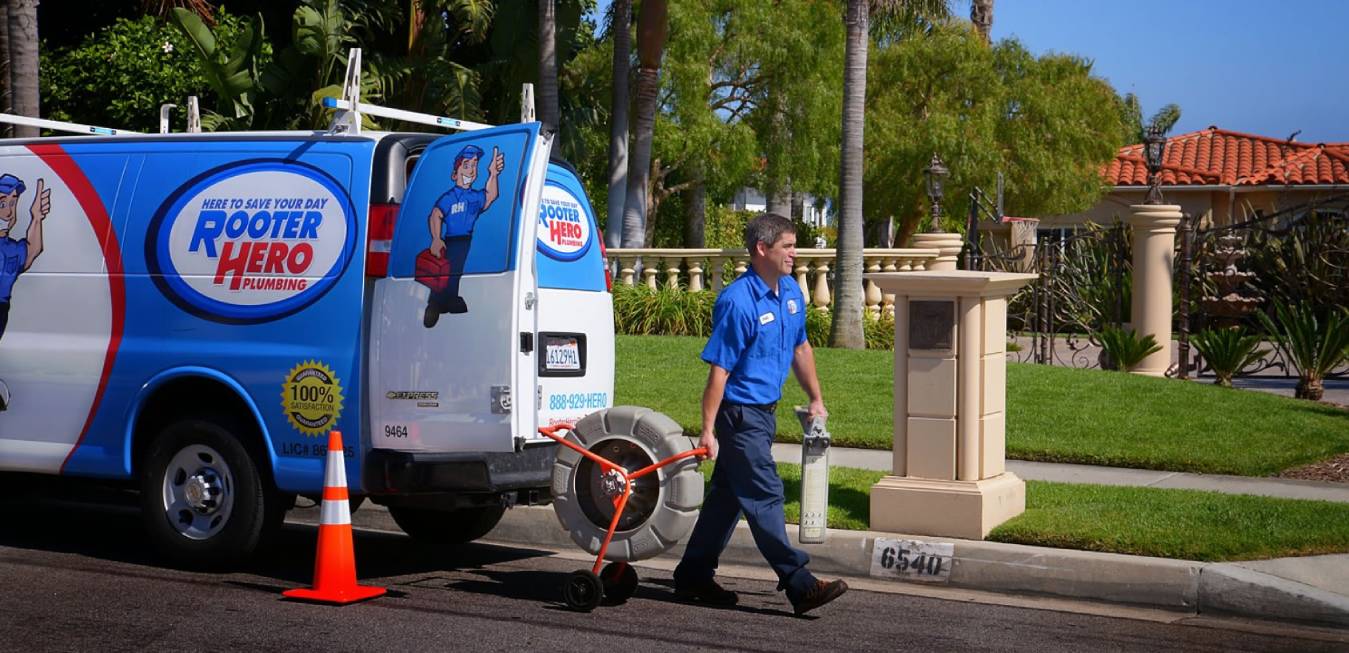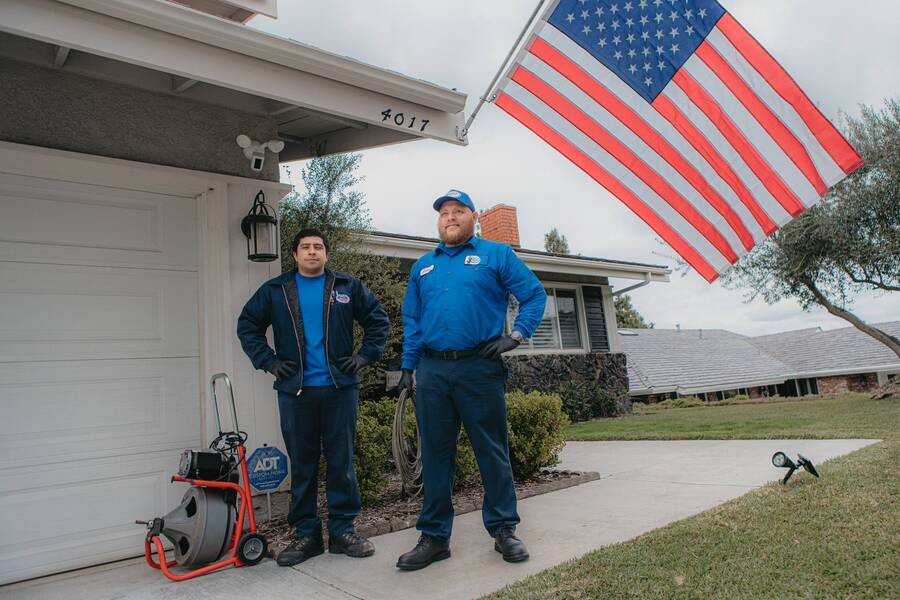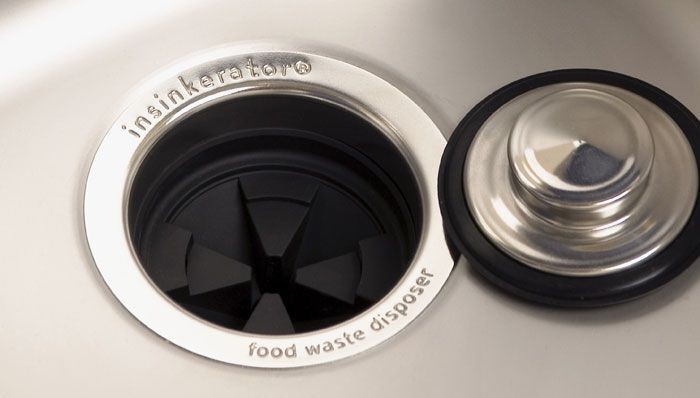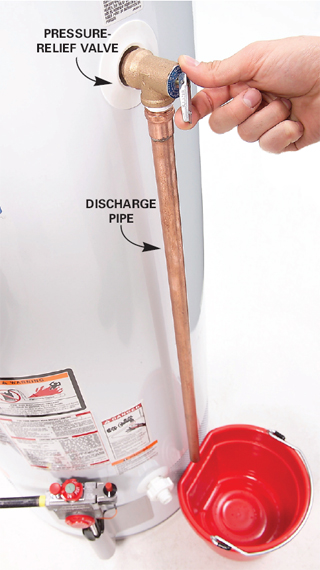
Water Heater Maintenance - Help Your Water Heater Last Longer
We cannot stress enough the importance of routine maintenance for your plumbing. This includes maintenance for your drains, and also your water heater. Both tank storage and on demand water heaters require regular maintenance in order to maintain efficiency and function. Unfortunately, many people are unaware that their water heaters need regular maintenance. As a result they may be caught off guard when their water heater decides to call it quits. Here is what you need to know about water heater maintenance.
Why Water Heater Maintenance Is Important
Regular maintenance is important for your water heater, because it helps your water heater work more effectively and efficiently. Over time, mineral deposits in your water can start to build up inside of your water heater. Sediment buildup can make it a lot harder for your water heater to heat and maintain the temperature of the water, affect the quality of water, and cause cause structural damage to the tank. Calcium deposits and rust are your water heaters worst enemies, as the corrosion can eat away at the tank, and also make heating mechanisms less effective. The best way to combat sediment buildup is to stay on top of regular maintenance. If you live in an area with particularly hard water, meaning more mineral deposits, then you may need to have water heater maintenance performed more frequently. Investing in a water softener is also a good idea to prolong the life of your water heater, other water using appliances, and your plumbing fixtures.
What Is Involved In Water Heater Maintenance?
Tank storage water heaters last about 10-12 years, while tankless water heaters will last about 20 years or so. However, with regular maintenance you can extend the life of your water heater, and also help it run more efficiently, which in turn will save you money. In addition, regular water heater maintenance will also help ensure that there are no safety concerns. Regular water heater maintenance involves:
Checking The Pressure Release Valve
This is an important safety step, as the pressure release valve automatically relieves the pressure inside of the tank if the pressure gets to high. Too much pressure inside of the tank, can cause the tank to explode. Which can be dangerous and also cause a lot of damage. 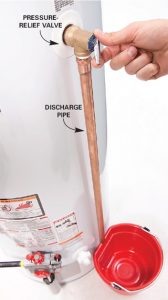
Draining And Flushing The Tank
To remove sediment buildup, the tank needs to be drained and flushed. Tankless water heaters also need to be flushed and descaled to remove excessive mineral deposits. Sediment buildup inside of your tank storage water heater can form a large mass inside of the tank, which can create a barrier between the heat source and the water. In addition, a large sediment mass the rumbles around the tank, can bang around and cause damage. 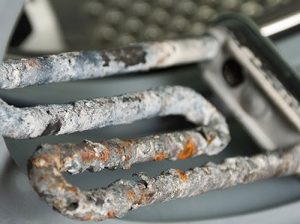
Inspect Heating Mechanism
Another important safety measure is to inspect the heating mechanism. If gas powered the pilot needs to be inspected. If electric powered the power supply needs to be inspected. For safe operating procedures the area should be free from dust, debris, and clutter.
Inspect The Anode Rod
The anode rod plays an important function in the lifespan of your water heater. An anode rod has a steel core surrounded by either aluminum, magnesium, or zinc. The function of the anode rod is to attract the mineral deposits in your water, this way they attach to the anode rod instead of the inside of your tank. Anode rods typically last about 4-5 years. Once the anode rod wears out, the rest of your water heater is fair game and can start to corrode. It is important to check and replace the anode rod if need be. Replacing the anode rod is less expensive than replacing the water heater. 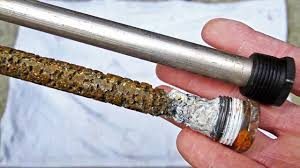
Look For Signs Of Damage
Inspecting the tank for visible signs of damage is important. Excessive corrosion is a sign that the water heater should be replaced. Aside from the visible signs, loud banging or rumbling sounds when the water heater is engaged could mean there is a large sediment mass inside of the tank, which is also grounds for replacement. The best way to increase the longevity of your water heater is to have regular water heater maintenance. In addition to helping your water heater last longer, you can also prevent any surprises. By having your water heater inspected you will know how old your water heater is and what condition it is in. This way, if your water heater is getting on in years, you can prepare. For more information on water heater maintenance or to schedule an appointment contact Rooter Hero today!



